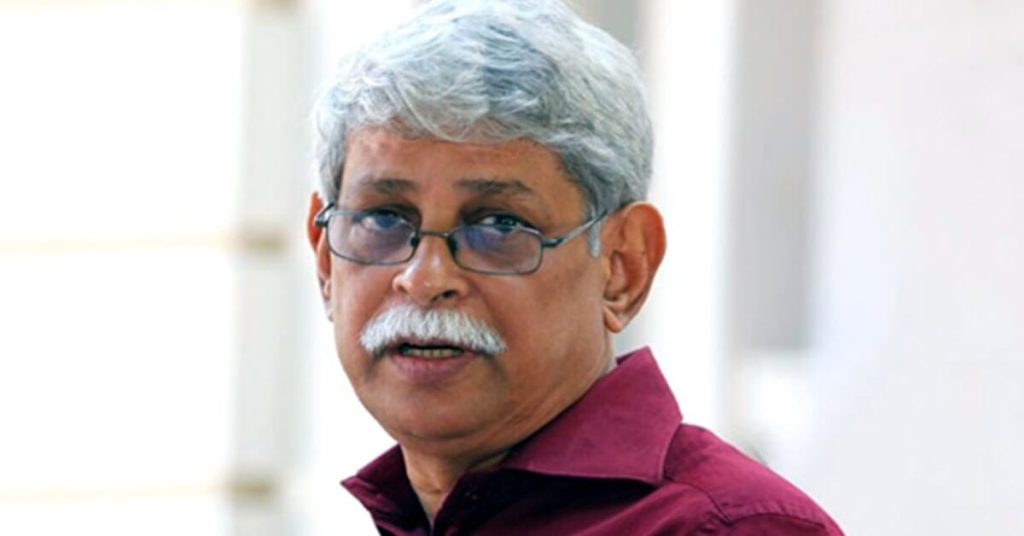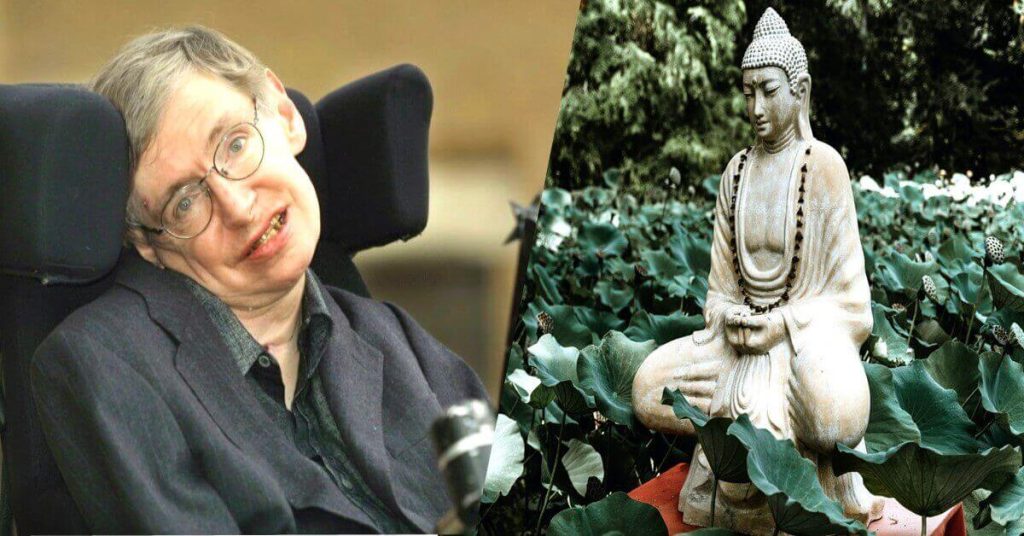Last updated on March 20th, 2024 at 12:20 pm
Have you ever wondered why happiness is so important?
The answer is simple: happiness leads to a better quality of life. On March 20th, people all over the world celebrate the International Day of Happiness to focus on the things that make us happy, and to spread joy and positivity to those around us. While material goods and money can provide temporary joy, it is essential to appreciate the true happiness that comes from within.
This internal state of happiness is achieved through a positive mindset, good relationships, and engaging in activities that bring joy and fulfilment.
International Day of Happiness
It was first celebrated in 2013, after the United Nations recognized the importance of happiness and well-being as fundamental human goals in June 2012.
The day is dedicated to promoting happiness as a universal human right, and to encouraging people to take action to create a happier world. The UN General Assembly formulated it recognizing the relevance of happiness and well-being as universal goals and aspirations in the lives of human beings around the world and the importance of their recognition in public policy objectives.
This year’s theme for the International Day of Happiness is “Keep Calm. Stay Wise. Be Kind.” This theme encourages individuals to maintain a positive outlook during difficult times, to seek knowledge and wisdom, to find ways to increase our overall sense of well-being and to spread kindness and compassion to those around them.
In today’s speedy world, it’s easy to get caught up in the stresses of daily life and forget to focus on the things that bring us actual happiness.
That’s why it’s so important to take a step back and reflect on what truly matters. It reminds us that even in the darkest of times, there is always a reason to be happy.
This is the day to remind us how busy we are in real life and the importance of slowing down to realise the happiness we are seeking for. A day to slow ourselves down to see the things of beauty around us. The writer of The Things You Can See Only When You Slow Down, Haemin Sunim, suggests, “When you are so busy that you feel perpetually chased, when worrying thoughts circle your head when the future seems dark and uncertain when you are hurt by what someone has said, slow down, even if only for a moment. Bring all of your awareness into the present and take a deep breath.”
The world is perceived through to the state of one’s mind. When your mind is joyful, happy and compassionate, the world is, too.
When your mind is filled with, positive, and negative thoughts, the world appears negative, too.
When your mind is at rest, the world also rests.
We are responsible for our happiness and must choose happiness, not success, as our life’s goal. If we become successful but aren’t happy, then what is the point? The celebrated writer of The Power of Positive Thinking, Vincent Norman Peale asks and answers, “Who decides whether you shall be happy or unhappy? You do. Just as Abraham Lincoln said, ‘people are just about as happy as they make up their mind to be’, we can be unhappy if we want to be, while it is the easiest to accomplish.
Even though not all unhappiness is self-induced, many of us manufacture our own unhappiness in our thoughts, attitudes and imagination.
People are just about as happy as they make up their mind to be.
~Abraham Lincoln
He writes, “Happiness is achievable and the process for attaining it is not complicated”. “To put an end to the unhappiness-producing and misery-producing process, we have to produce our own happiness. Our happiness or unhappiness depends to an important degree upon the habit of mind we cultivate. Sunim writes, “we know the world only through the window of our mind. When our mind is noisy, the world is as well.
And when our mind is peaceful, the world is, too. Knowing our minds is just as important as trying to change the world.”
What is Happiness
Psychologically or regarding mental and emotional state, it is a condition of emotional well-being or positive or pleasant emotion ranging from contentment to intense joy.
Encyclopaedia Britannica goes so far as to say that in a narrow and broader sense, it is an experience that one experiences as good things happen in a specific moment, a positive evaluation of one’s life and overall accomplishment.

While happiness is expressed alternately by ‘life satisfaction, ‘well-being, ‘subjective well-being’, ‘flourishing’ and ‘eudaimonia’, it can be distinguished from negative and positive emotions, such as sadness, fear and anger, or affection, excitement and interest. Happiness is obvious in a specific facial expression: a smile. Nevertheless, the definitions of ‘Happiness’ have been a subject of debate.
As to satisfaction and quality of life as markers of happiness, Ruut Veenhoven says that happiness is “overall appreciation of one’s life as a whole”.
“The experience of joy, contentment, or positive well-being, combined with a sense that one’s life is good, meaningful and worthwhile”, says Russian-born American psychologist, Sanjaya Lyubomirsky. People across the world tend to maintain a similar notion of happiness.
Happiness and the domain of happiness have been philosophised for a long time, as well.
For the philosophers, happiness has a link with morality and ethics, when one has to maintain a certain sort of social and religious life for happiness.
Ethics says our happiness is depended on our individual or collective behaviour. The advocates of Utilitarianism, John Stuart Mill and Jeremy Bentham hold that “one must always act so as to produce the greatest aggregate happiness among all sentient beings, within reason.” The greatest happiness for the greatest number. For Aristotle, eudaimonia is the centre of human thought and action which in Greek means “the state or condition of ‘good spirit’, and which is commonly translated as ‘happiness’ or ‘welfare’.” He, like modern psychologists, understood that happiness which is being and doing good is the only thing humans desire for their own sake, unlike riches, honour and health.
For him, happiness or eudaimonia is “activity in accordance with virtue”, rather than an emotion or a psychological state meaning to say that “the happy life is the good life, that is, a life in which a person fulfils human nature in an excellent way.
Indeed, researchers found that “people thought attaining happiness as being more important than acquiring money, maintaining good health, and even going to heaven.”
German philosopher Fredrich Nietzsche conceptualised the idea that happiness must be attained through struggle, difficulty and pain, which affirms the psychological theory that people and animals are motivated to approach things in the world that cause pleasure and to evade things in the world that cause pain.
According to Nietzsche, happiness must come through suffering and unhappiness.
However, the hedonistic ideals or hedonism promote that human behaviour is determined by a desire to increase pleasure and decrease pain. In hedonism, happiness is central to everything. The unrestrained pursuit of happiness is responsible for unhappiness.
People who tend to adhere to the hedonistic principle of pleasure and happiness promote individualistic culture or individualistic hedonism, obvious in the richer countries where subjective well-being is higher, such as in Western cultures where individual happiness is most important than collective happiness. The opposite is true to the people of Asian culture where their happiness is dependent on collective and social relationships. Though for people seeking happiness or pleasure is the ultimate goal and aimed to derive it through various means, it has a different approach and significance religiously.
The writer of Ecclesiastes in the Old Testament declares, “Then I considered all that my hands had done and the toil I had expended in doing it, and behold, all was vanity and a striving after wind, and there was nothing to be gained under the sun.” King Solomon realised that all the toil, wealth, riches, struggle, and suffering brought him no happiness, nothing made him feel that his life has more inherent worth and purpose than that of animals.
The pursuit of happiness let him down even after having everything desired. While riches may bring happiness to some, it is also true that prosperity brings unhappiness.
Buddhism and Stoicism teach that striving for external goods, or to make the world conform to your wishes, is always a striving after wind.
Happiness can only be found within, by breaking attachments to external things and cultivating an attitude of acceptance.
However, Buddha, Epictetus, and many other sages saw the futility of striving and struggling for happiness and urged people to quit. They proposed a particular happiness hypothesis: Happiness comes from within, and it cannot be found by making the world conform to your desires. Buddhism teaches that attachment leads inevitably to suffering and offers tools for breaking attachments. The Stoic philosophers of Ancient Greece, such as Epictetus, taught their followers to focus only on what they could fully control, which meant primarily their own thoughts and reactions.
Judaism recommends happiness in serving God.
Happiness in Christianity depends on one’s contentment and love towards God and others.
Therefore, Jesus teaches, “Beware. Keep yourselves from all covetousness, for a man’s life does not consist of the abundance of the things which he possesses.”
For Thomas Aquinas, happiness lies in contemplative intellect, that contemplates divine things.
No matter how transitory our happiness and pleasure are, our material possessions and economic well-being are somewhat responsible for it. Psychologists and philosophers propose many determiners of happiness. Though thought to play a major role in acquiring high-paying jobs and dreaming about winning the lottery, income is not strongly correlated with happiness.
More advantaged people are happier than the less advantaged people, but the difference is not very significant.
As one might expect, the association between money and happiness is strongest among very poor groups and among poor countries, as seen in the World Happiness Report where underdeveloped countries have no places.
It is understandable why the most prosperous nations are the happiest. According to the World Happiness Report 2023, “income, healthy life expectancy in terms of physical and mental, having someone to count on during bad time, having a sense of freedom to make key life decisions including the human right to life and liberty. Generosity, and the absence of corruption all play strong roles in supporting life evaluations in terms of happiness in which Scandinavian countries fare better.”
As per World Happiness Reports 2024, the top 10 happiest countries are Finland, Denmark, Iceland, Sweden, Israel, Netherlands, Norway, Luxembourg, Switzerland and Australia, positioning Bangladesh at 129. In 2023 the order was: Finland, Denmark, Island, Israel, Netherlands, Sweden, Norway, Switzerland, Luxemburg and New Zealand.
As one can presume, health also plays a vital role in determining happiness and subjective well-being, yet minimal.
surveys on doctor’s reports, hospital visits and symptoms show that happiness is only weakly related to physical well-being.
However subjective report such as one’s own evaluation of one’s health has a stronger correlation with happiness.
However, the factor that has been most closely linked to high levels of happiness is social relationships. Yet again to quote Sunim, “If happiness is what we hope to achieve in our lives, shouldn’t we put more effort into cultivating good relationships with the people around us?” Research consistently proves that people with strong social relationships are the ones reported to have higher levels of well-being. As with other domains, subjective reports of relationship quality and relationship satisfaction tend to exhibit the highest correlations with subjective well-being.
My favourite British philosopher Bertrand Russell in his The Conquest of Happiness outlined the reasons for happiness and unhappiness. To him the reasons behind one’s unhappiness are a) Byronic Unhappiness, supposing that those among us who are wise have seen through all the enthusiasms of earlier times and that there is nothing left to live for; competition, boredom and excitement, fatigue, envy, the sense of sin, persecution mania–imagining that others wish to kill them, or imprison them, or to do them some other grave injury—and fear of public opinion.
He says, “Certain things are indispensable to the happiness of most men, but these are simple things: food and shelter, health, love, successful work and the respect of one’s own herd. To some people parenthood also is essential.”
Conversely, Russell argued that the reasons for happiness are zest, affection, the family– affection of parents for children and of children for parents—work, and effort and resignations—finding the balance between effort and resignation.
Moreover, Russell writes, “Happiness depends partly upon external circumstances and partly upon oneself.
The man who is unhappy will, as a rule, adopt an unhappy creed, while the man who is happy will adopt a happy creed; each may attribute his happiness or unhappiness to his beliefs, while the real causation is the other way round. This resounds with the theory that American psychologist Barbara Fredrickson posits that the function of happiness or positive emotion is to broaden one’s thinking and to build one’s resources that lead people to think resourcefully and to try new things with positive outcomes in their lives.
Socrates believed that true happiness could only be achieved through self-knowledge and virtues.
In the contemporary world, Plato’s influence can be traced in any search for happiness or the good life that involves looking beyond sensory experience toward a deeper meaning to life.
However, the ancient Stoics believed that material wealth, happiness, love, and admiration all were subject to change and that therefore a person must not base his or her well-being on such ephemera. For them, virtue is necessary and sufficient for eudaimonia or happiness. According to American social psychologist Jonathon Haidt, pleasure comes more from making progress toward goals than in goal attainment. For happiness, we need to rise above our tendencies to be self-centred, egocentric, judgmental, and biased.
Therefore, positive social relationships are important to well-being; love and emotional attachment are important to happiness; virtues are important to well-being; spirituality and self-transcendence are important to well-being. Having a sense of meaning and purpose in life is important.
It comes from vital engagement in life and a sense of coherence or integration among various parts of your life.
Holocaust survivor and psychologist and the author of Man’s Search for Meaning, Victor Frankl suggests that like success, happiness also cannot be pursued; it must ensue, and it only does so as the unintended side-effect of one’s personal dedication to a cause greater than oneself or as the by-product of one’s surrender to a person other than oneself. Happiness must happen, and the same holds for success: you have to let it happen by not caring about it. For him finding the purpose of life is the source of happiness.
“Our current mental-hygiene philosophy stresses”, Frankl writes, “the idea that people ought to be happy, that unhappiness is a symptom of maladjustment.
Such a value system might be responsible for the fact that the burden of unavoidable unhappiness is increased by unhappiness about being unhappy.”
You will never be happy if you continue to search for what happiness consists of. You will never live if you are looking for the meaning of life.
~Albert Camus
It’s also important to consider that happiness is not a one-size-fits-all concept and is purely a subjective matter.
What brings happiness to one person may not bring happiness to another. That’s why it’s important to take the time to discover what truly brings us joy and to pursue it. Whether it’s spending time with loved ones, pursuing a hobby, or simply taking a moment to enjoy the beauty of nature, finding what makes us truly happy is essential to our overall well-being.
“Therefore”, Vincent Normal Peal suggests, ” in order to have happiness, cultivating positive and affirmative thoughts is very important.”
Just choose unhappiness and go ahead telling yourself that nothing is going well, that nothing is satisfactory, and you can be quite sure of being unhappy.
But say to yourself, ‘Things are going nicely, life is good, I choose happiness, and you will be quite certain of having your choice.
Happiness isn’t just a subjective feeling – it’s also a measurable phenomenon. In recent years, scientists have been studying the science of happiness, exploring the factors that contribute to our overall well-being. Some of the key findings include Social Connection, a fundamental aspect of happiness. Studies have shown that people who have strong social connections tend to be happier, healthier, and more resilient; Gratitude, a powerful tool for increasing happiness and positivity.
People who practice gratitude on a regular basis tend to experience higher levels of well-being and lower levels of stress; and mindfulness, the practice of being present and fully engaged in the current moment. Research has shown that mindfulness can lead to a wide range of benefits, including reduced stress and increased well-being. Christopher Peterson states that people exist in social contexts and that well-being is not just an individual pursuit by saying “Other people matter.”
Why is Happiness Important?
Happiness is not just a fleeting emotion – it has a significant impact on our overall well-being.
When we are happy, we feel more energized, productive, and creative. We are better equipped to deal with stress and challenges, and we have stronger relationships with those around us. In short, happiness is a key ingredient in a fulfilling and satisfying life. Just as the Judaic proverb says, “a happy heart enlightens the face, but a sad heart reflects a broken spirit,” it is important for us to have happiness in life.
People can still be happy despite lacking their desired position, material and person.
It largely depends on contentment. Unlike pleasure, happiness is not addictive, but contagious in the sense that it affects our surroundings for the better.
Why happiness gets boring, pleasure addictive and peace long-lasting is a domain of neurology to discuss. As for the healthy effect of happiness, the research found that positively emotional people are more like to resist cold. It has a significant impact on our physical and mental well-being.
It is crucial for our overall health and happiness to practice self-care, and positive thinking, and engage in activities that bring us joy. Studies show that happy people are less likely to suffer from stress, depression, and anxiety, and have better physical health outcomes.
How Can You Celebrate
There are many ways to celebrate the International Day of Happiness, both individually and as a community. Here are just a few ideas:
1. Practice Gratitude
Take some time to reflect on the things in your life that you are grateful for. Write them down in a journal or share them with a friend or loved one. Gratitude is a powerful tool for increasing happiness and positivity.
2. Spread Kindness
Perform a random act of kindness for someone else. Whether it’s buying a coffee for a stranger or sending a thoughtful message to a friend, spreading kindness can have a ripple effect that spreads far beyond the initial action.
3. Connect with Others
Make an effort to connect with the people around you, whether it’s through a phone call, a video chat, or an in-person conversation. Human connection is essential for our well-being, and it’s something that we can all cultivate in our own lives.
4. Do Something That Makes You Happy
Take some time to do something that brings you joy, whether it’s going for a walk in nature, reading a good book, or indulging in your favourite hobby.
Prioritizing your own happiness is an important step in creating a happier world.
Conclusion
The International Day of Happiness is a reminder to focus on the things that truly matter in life – joy, positivity, and human connection.
By celebrating this special day, we can all take small steps towards creating a happier world. Whether it’s practicing gratitude, spreading kindness, or simply taking time to do something that makes us happy, every action counts. As we all know, happiness is something that we all desire, but often find difficult to obtain. That’s why, since 2013, the United Nations has designated March 20th as the International Day of Happiness. Let us take a moment to recognize the importance of happiness and well-being in our lives.
By cultivating a positive mindset, practicing gratitude, and engaging in activities that bring us joy, we can promote happiness and well-being within ourselves and others.
According to Sunim, “Happiness can be assessed with two simple questions: First, do you find meaning in your work? Second, do you have good relationships with those around you?
We live among uncountable relations such as family, friends, colleagues, neighbours, etc. Life is good when these relationships are good. Being happy by yourself doesn’t last long.
Happiness means finding a moment of joy in ordinary things and in hours.






